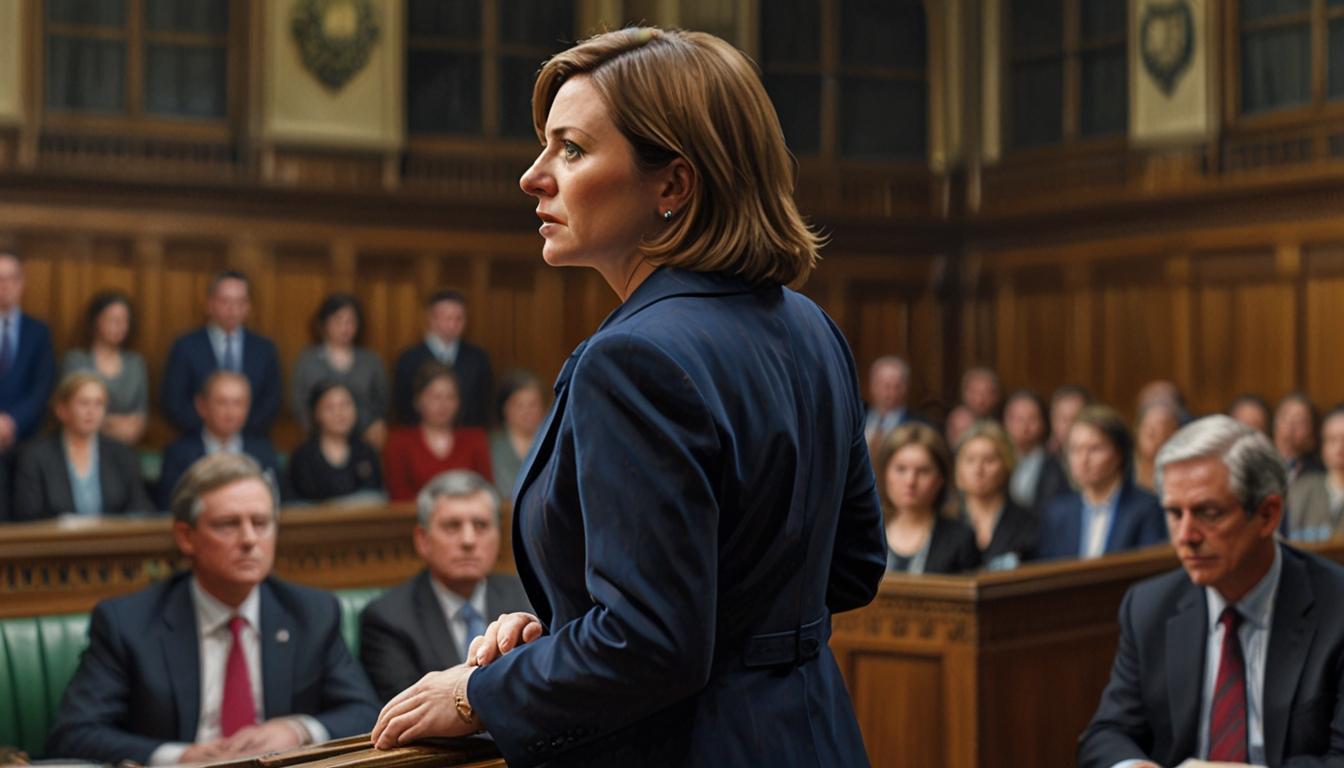Cabinet minister Lucy Powell found herself enmeshed in controversy after her recent comments about grooming gangs ignited outrage, leading her to apologise in the House of Commons for what many perceived as a belittling remark towards survivors of sexual assault. The Labour MP for Manchester Central faced criticism for suggesting that the issue of group-based child abuse was merely a "dog whistle" topic on a BBC Radio 4 programme. This comment, which came in response to a query about a recent Channel 4 documentary, was met with immediate backlash, prompting calls for her resignation.
In a subsequent appearance at the Commons, Powell sought to clarify her position, stating, “I am very sorry for those remarks… I would never want to leave the impression that these very serious, profound and far-reaching issues should be shied away from.” Her remarks underscore the complexity surrounding the discourse on child grooming and the sensitivity required when addressing the experiences of survivors. Sarah Wilson, a victim of the Rotherham scandal, voiced her frustration, noting that such comments reflect the ongoing struggles those impacted by these crimes face in being taken seriously.
The government's stance on grooming gangs has been a contentious topic, not least because it has emerged against a backdrop of high-profile scandals. For instance, Labour's decision to reject calls for a new national inquiry into these heinous crimes sparked further debate, particularly as the Home Secretary, Yvette Cooper, ordered a "rapid audit" into the extent of child abuse in the UK, prioritising local investigations over broader, national oversight.
Calls for accountability have intensified as victims and advocates demand overdue justice for those affected by these crimes. During the Commons session, Conservative MP Katie Lam pointedly asked Ms. Powell about the need for a national inquiry, citing persistent issues related to the lack of justice for victims and the alleged complicity of officials. Powell responded by emphasising the government's commitment to implementing recommendations from previous inquiries, including mandatory reporting of child sexual abuse, a measure she has championed alongside other government officials for years.
However, the effectiveness of Labour's response remains under scrutiny. Many critics argue that the current measures may not adequately address the breadth of the systemic issues surrounding grooming gangs. As the political discourse continues, it highlights the delicate balance of addressing hard truths while fostering sensitive dialogue surrounding a highly charged topic.
In the face of rising tensions, Prime Minister Sir Keir Starmer has come to Powell's defence, illustrating the government's precarious position as they navigate the implications of their policies and the fervent calls for accountability from survivors and advocates alike. As scrutiny of Labour's handling of grooming gangs intensifies, the question remains: will the government's actions match the urgency of the situation?
In summary, Powell's comments and subsequent apology spotlight the critical, ongoing dialogue about accountability and the experiences of survivors, forcing policymakers to confront uncomfortable truths and demanding sustained commitment to justice.
Reference Map:
- Paragraph 1 – [1]
- Paragraph 2 – [1], [2]
- Paragraph 3 – [1], [4]
- Paragraph 4 – [1], [5]
- Paragraph 5 – [1], [6]
- Paragraph 6 – [3], [7]
Source: Noah Wire Services
